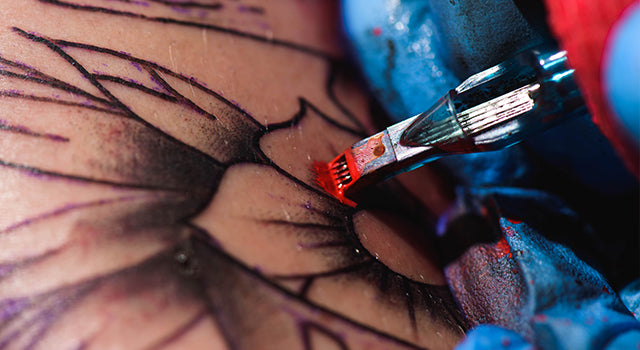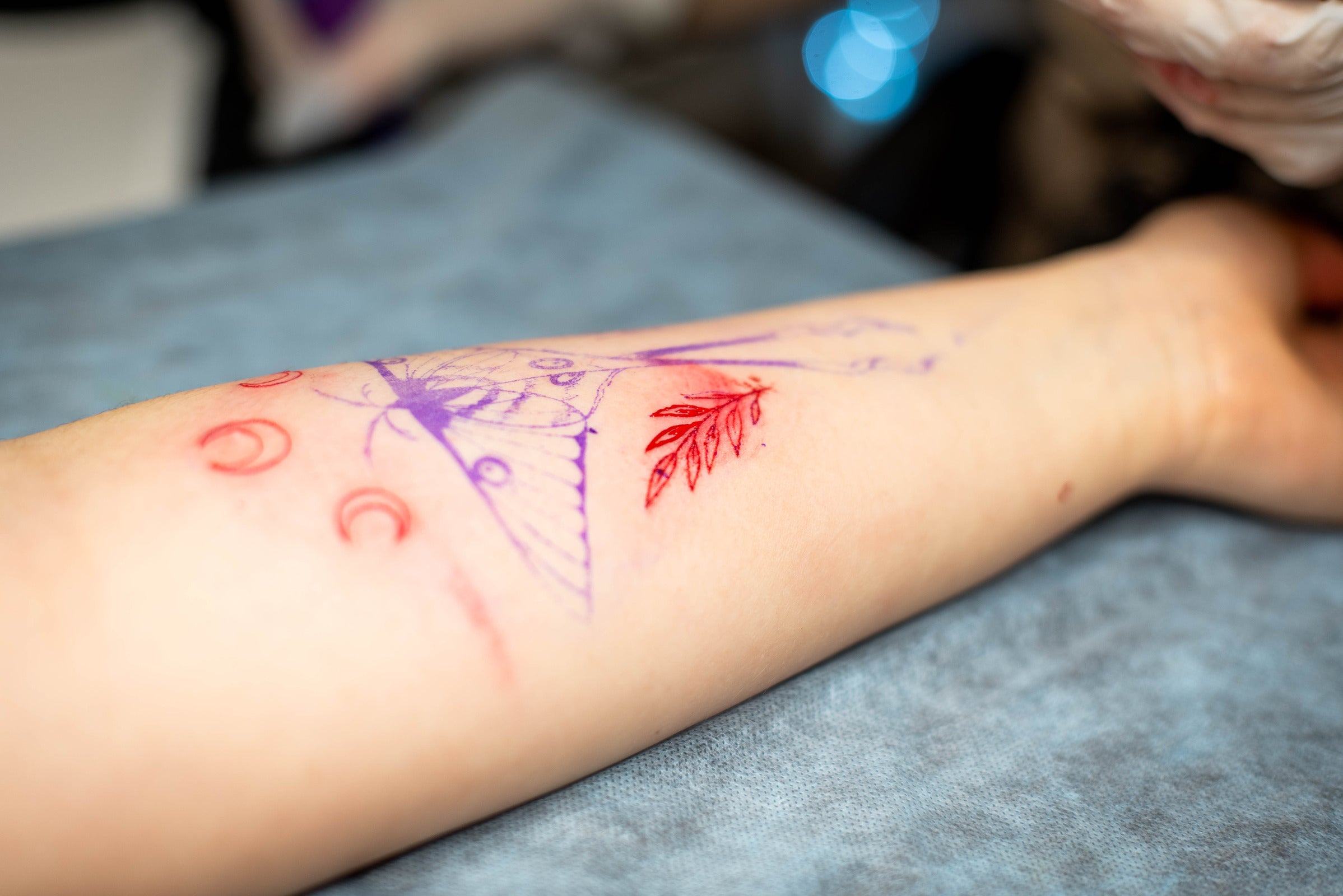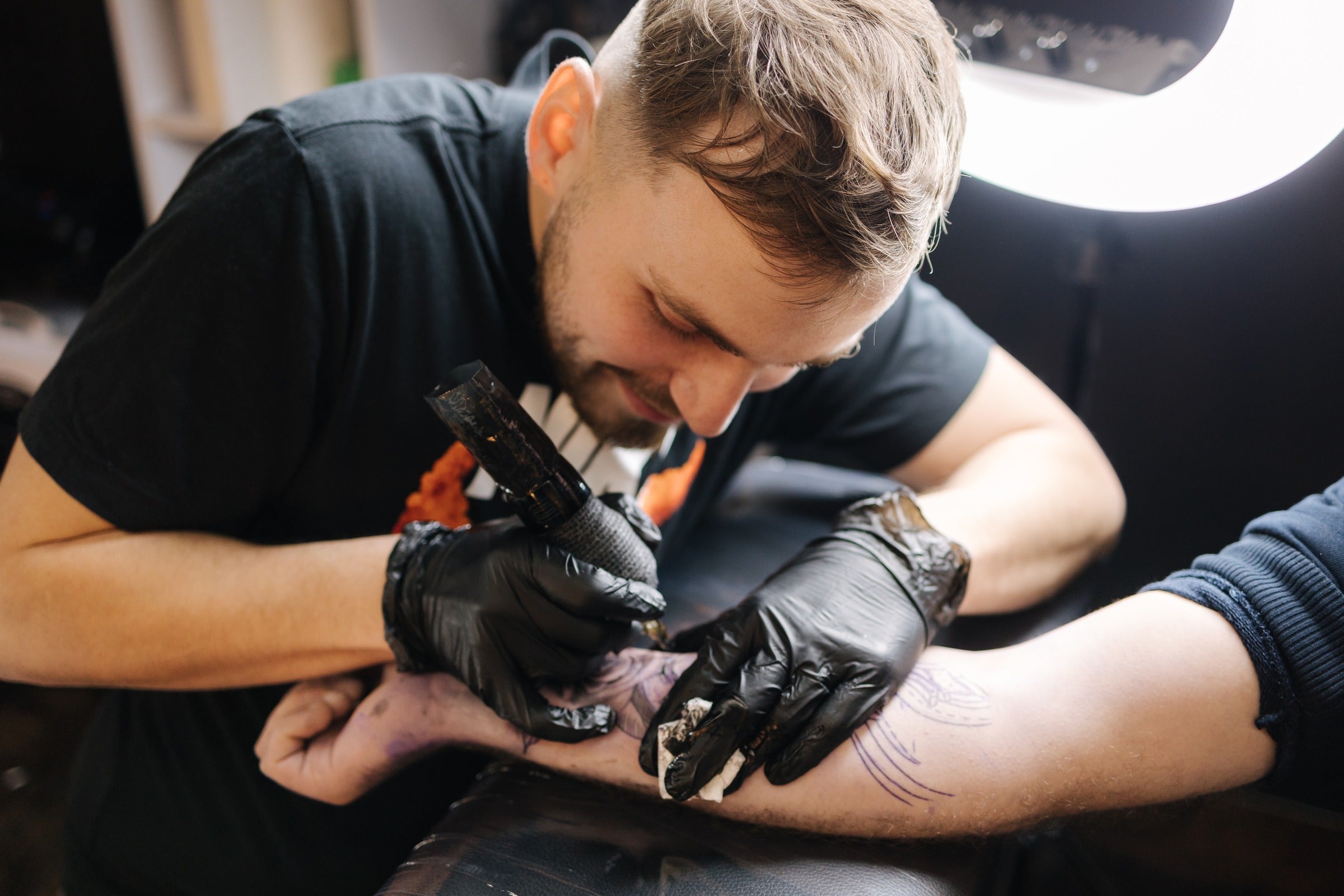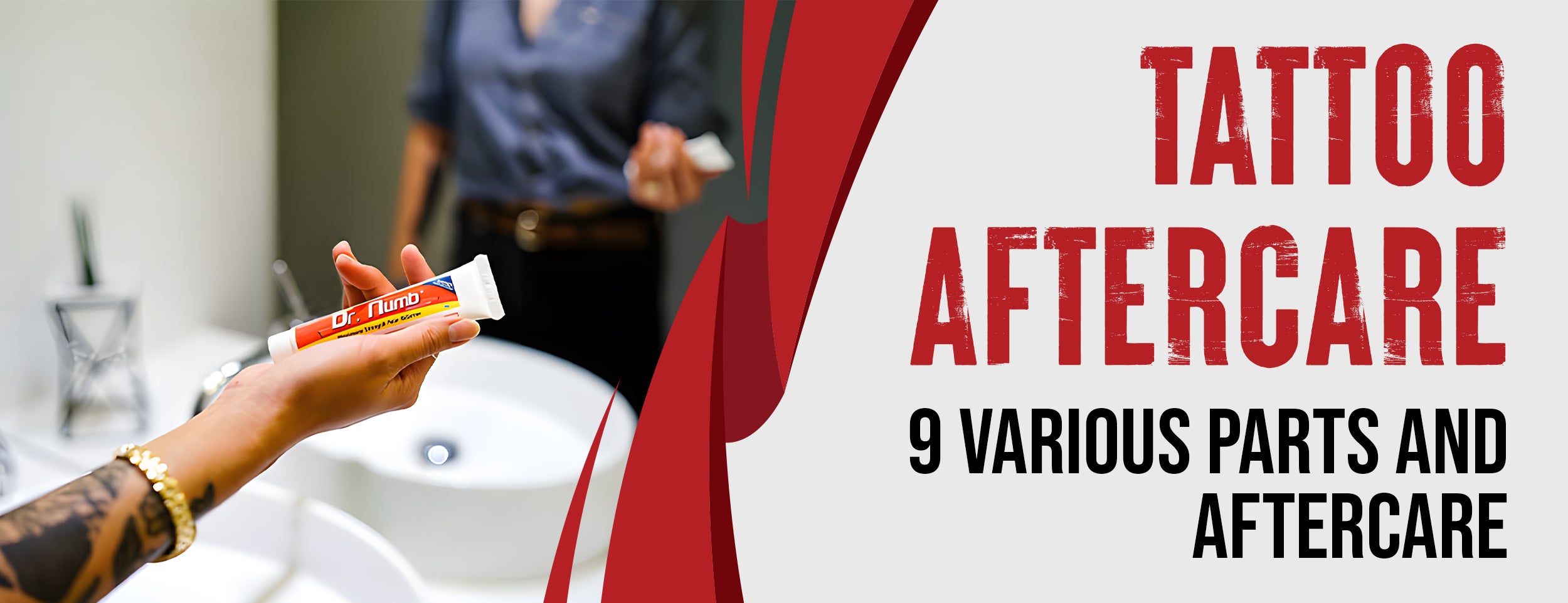While antibiotics combat infections, they might weaken your body, increasing the risk of complications for your tattoo.
No, it's not advisable to get tattooed while on antibiotics. The medication can weaken your immune system, increasing the chances of complications and delaying healing. It's best to wait until you've finished the antibiotic course before getting a tattoo.
In this blog post, we will explore 3 Risks and 3 Effects of getting tattooed while taking antibiotics. We have incorporated 4 precautions to safeguard your information.
Key Takaways
- Allergic Reactions: Antibiotics can heighten sensitivity, increasing the risk of allergic reactions to tattoo ink because of altered immune responses.
- Healing Disruption: Antibiotics for infection prophylaxis may disrupt the body's bacterial balance, potentially delaying tattoo healing and complicating the process.
- Blood Thinners: Certain antibiotics can thin the blood, leading to increased bleeding during tattooing and affecting tattoo quality.
Can You Get Tattooed On Antibiotics: 3 Risks
Knowing the potential risks is crucial when considering getting a tattoo while on antibiotics. Medication can have unexpected effects on the body and the tattooing process. Let's dive into some of these risks to help you make an informed decision.
Increased Likelihood of Allergic Reactions

- Allergic Responses: Being on antibiotics can sometimes make your body more sensitive, increasing the chances of allergic reactions to the tattoo ink.
- Understanding Sensitivity: Antibiotics can alter your body's normal responses, making it react more strongly to foreign substances like tattoo dyes.
The Role of Antibiotics Prescribed for Prophylaxis
- Preventive Measures: Doctors sometimes prescribe antibiotics as a preventive measure against infection. However, this can complicate the tattoo healing process.
- Implications for Healing: While these antibiotics aim to prevent infection, they may disrupt the balance of bacteria in your body, affecting how well and quickly a tattoo heals.

Anti-Clotting and Blood Thinners Can Affect Tattoos
- Blood Flow Concerns: Certain medications, including some antibiotics, can impact tattooing if you take them to thin your blood or prevent clotting.
- Understanding the Impact: These medications can lead to increased bleeding during the tattoo session, which might affect the quality of the tattoo and its healing time.
Get Tattooed on Antibiotics: 3 Effect
Getting a tattoo is a big decision, so preparing for it is essential. If you're taking antibiotics, you should know a few things about how they can affect the process.
How Antibiotics May Slow Down Healing?
- Slower Healing: When you're on antibiotics, your body's healing process might slow. This means your cool new tattoo might take longer to heal.
- Why It Happens: Antibiotics fight infections but can also affect the good bacteria in your body and disrupt your natural healing process.
Infections During Healing Are More Likely To Occur

- More Infections: While antibiotics are supposed to fight off infections, your skin is more open to bacteria when you get a tattoo. If your body's balance is off because of the antibiotics, it might be harder to fight these bacteria off.
- Keeping It Clean: It's super important to keep your tattoo clean and follow all the care instructions from your tattoo artist, especially when you're on antibiotics.
Debunking Myths: Do Antibiotics Affect Ink Rejection?
- The Truth About Ink Rejection: There's a myth that antibiotics can cause your body to reject tattoo ink. There's not much evidence to support this.
- What Matters: The most important factors affecting how your tattoo heals are how well you take care of it and your body's unique reaction to the ink.
Getting Tattooed On Antibiotics: 4 Precautions
Tattoos require careful consideration and several precautionary steps when taking antibiotics. This approach ensures the healthiest outcome for your tattoo and reduces potential risks associated with antibiotic use during the healing process.

Consulting with a Physician
- Seek Professional Guidance: Before making tattoo appointments, consult your healthcare provider about the safety and timing of tattooing while on antibiotics.
- Discuss Medication Effects: Understand how your current medications might affect the tattooing and healing processes.
Tattoo Artist's Perspective: When to Seek a Second Opinion
- Share Your Medical Situation: You must inform your tattoo artist that you are taking antibiotics. This transparency allows them to assess any additional risks.
- Value Their Experience: Experienced tattoo artists have seen how various factors affect tattoo healing. Consider seeking a second opinion or delaying your tattoo if they express concerns.
Pre-Tattoo Checklist For Taking Antibiotics

- Assess Healing Capacity: If you’re on antibiotics for an infection, your body is already working hard to heal. Adding a tattoo into the mix might not be advisable.
- Wait Until You’re Healthy: It might be best to wait until your antibiotic course is finished and your infection has cleared up. This waiting period ensures your body is in the best condition to handle a new tattoo.
Think About Your Health
- Your Body Is Busy: Antibiotics are already causing your body to work hard. Getting a tattoo might be too much for it right now.
- Best Time for a Tattoo: Waiting until you're all better and off antibiotics means your body can focus on healing your new tattoo.
Talking to your doctor and tattoo artist and ensuring your body is ready are key steps to a great tattoo experience before getting a new tattoo while on antibiotics.

Conclusion
Here's the breakdown, folks! We've delved deep into tattoos and antibiotics, debunking myths, shedding light on risks, and underscoring crucial precautions.
Remember, combining tattoos with antibiotics is no trivial matter. It's a juncture where art intertwines with well-being, deserving utmost consideration.
Always seek counsel from your physician and tattoo artist, heed their guidance, and make reasonable, informed choices. Wishing you happy inking and safety on your journey, friends.

![Antibiotics and Tattoos: 3 Risks and 3 Effects [with 4 Precautions]](http://drnumb.com/cdn/shop/articles/Can_You_Get_Tattooed_On_Antibiotics__3_Risks_and_3_Effects_4_Precautions.jpg?v=1714128292&width=1100)












